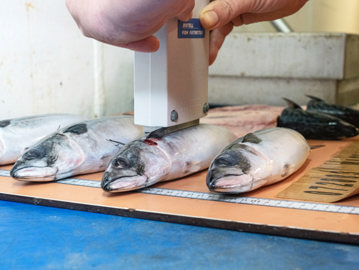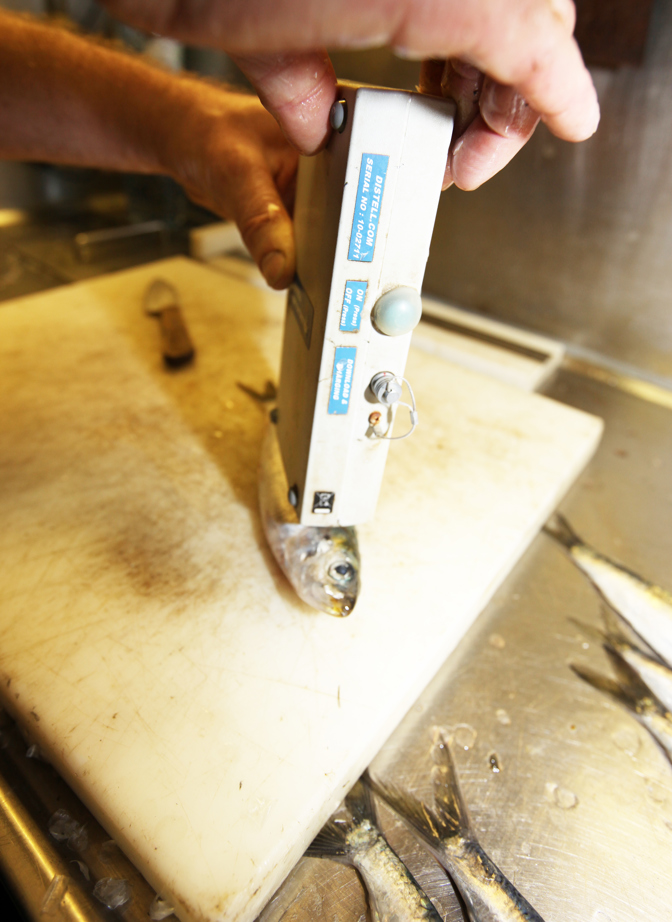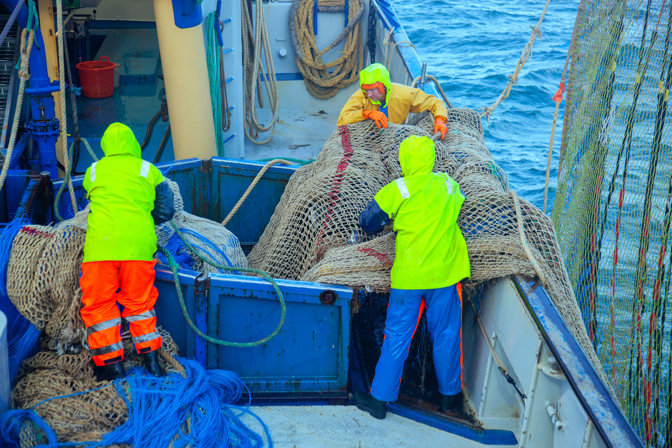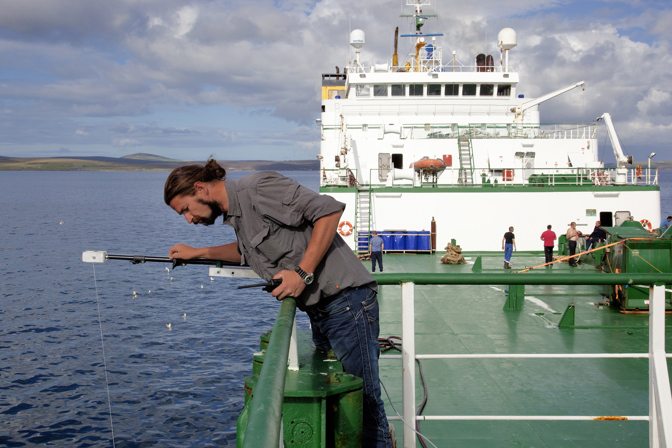
Fisheries research for sustainability
To maintain the balance in the sea, scientific research into stock sizes is important. This is the basis for establishing responsible quota.
Our contribution to research
To care for future generations, sustainable fishing is vital.
Fisheries research is essential to make the right estimates of fish stocks and to set responsible fish quotas on that basis. Those quotas determine the maximum amount of fish that we, as a business, may catch. Proper research requires data. As we are out at sea every day, we serve as an extra set of ‘eyes and ears’ for fisheries researchers.
We share the data collected on board with scientific institutions, take observers on board, and actively contribute to special scientific studies to obtain a better insight in the fish stocks. The more data is available, the more precise estimations can be made of the size of the fish stocks.
Research on stock sizes
Quotas are set annually to determine the maximum amount of fish that we, as a business, may catch. Those quotas are set based on scientific research. To give proper advice, fisheries researchers need a lot of data, per each fish species and area, about the sizes of fish stocks and catches. But also, for example, about the age, condition and reproduction of the fish. Our fishermen on board invest a great deal of time and energy in making such data available. We benefit from proper setting of the fishing quotas. That way, we can continue to fish sustainably for the generations of today and of the future.
Sharing data
As we also benefit from the insights from scientific research, we are happy to help. We have done so for several years now by sharing data from our quality managers on board with researchers. One of the quality manager’s jobs is to ensure that the food safety and hygiene procedures are complied with and that everyone on board attends to quality assurance.
The quality manager monitors the hygiene, the freshness of the fish, and compliance with HACCP protocols. He is also responsible for sorting the fish. To that end, the quality manager works closely with the skipper, the engineers and the shift foremen to keep a critical eye on the quality and sorting of the catch that is stored in the Refrigerated Sea Water (RSW) tanks. For example, the fish may not be stored in these tanks for too long, and the fish must be frozen within 6 to 12 hours of being caught. In addition, the quality manager samples the frozen fish and shares his insights with the skipper and the shore-based organisation. In other words: the quality manager is the person on board who is responsible for the quality of the fish: from catching to landing.
In this respect, Cornelis Vrolijk works together with the Dutch Pelagic Ship-owners' Association (RVZ). RVZ has its own scientist who coordinates various scientific studies which our vessels and crews are happy to contribute to.

Participation in surveys
Another form of research collaboration is our participation in scientific surveys. During these surveys, specific data are collected that are needed to get a better insight into certain fish stocks. For example, for fish stocks that we do not have enough information about to give solid quota advice, like turbot and brill. But also the development of measures to prevent unwanted bycatch, like the escape panels that Cornelis Vrolijk developed. Expanding knowledge about (the size of) fish stocks and measures to fish as selectively as possible helps to keep the sea vital.

Observers on board
On both our trawlers and on our demersal trawlers, we frequently take observers on board. These are often observers from Wageningen Marine Research, the Wageningen University & Research’s (WUR) institute for applied marine environmental research. They monitor and sample the composition of the catch on board. The data collected are used by the research institute to estimate stocks and to advise on quotas, in conjunction with colleagues from research institutes in other countries. This way, we make a contribution to reliable quota advice.

